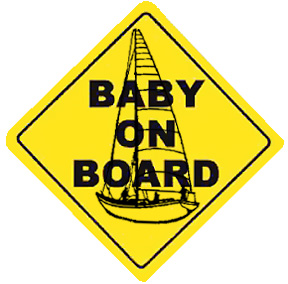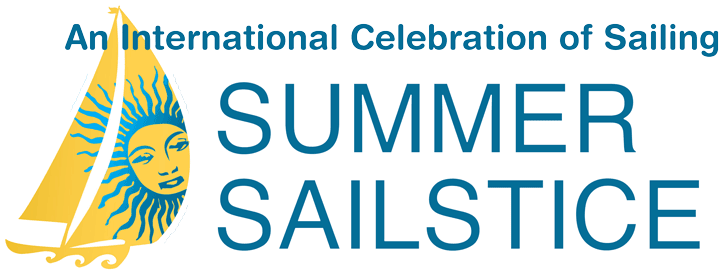
The recent story about the couple and their children rescued 900 miles West of Cabo San Lucas reminded me that when I was 24 years old I helped sail a Westsail 32 from North Carolina to the Virgin Islands with very good friends and their almost 1 year old baby. As all sailors know the oceans, the wilderness, the highways and the whole world is filled with young couples taking children out for adventures. And people have a variety of opinions of what constitutes a reasonable family adventure. Some are terrified by highways, living in high-crime cities sending kids to schools loaded with guns and potential mass-shootings. Others are terrified by the sea. But, when I was 24, sailing across 1200 miles of ocean with a 'safe' boat, good sailors and a baby (and no GPS, no EPIRB, no SSB - just a compass, a VHF, a radar reflector and a sextant) didn't seem unreasonable. And it wasn't. Baby and all had a great trip that continued for thousands of miles.
While the storm of negative coverage of the family rescue off Cabo San Lucas continues there are many happy families continuing to live beyond the perceived safe cacoon of suburban neighborhoods and the reach of 911. And it's easy to understand the terror many people feel when they imagine the 'dangers of the sea' but, as most sailors know, it is exceptionally rare to have these kinds of dramas and numerous sailors, as they always have, will continue to cruise with their families for thousands of miles every year.
The cost of the rescue is another issue that's hard to solve to everyone's satisfaction. If you have a house you insure it for fire. If it burns down the insurance company will pay to rebuild it. But they won't pay for the firemen, the fire station, the fire trucks and everything else involved in the rescue. There certainly isn't an answer that's going to feel right to the whole country but we know the city, state and federal governments spend unreimbursed billions every year saving citizens who hike, bike, ski, bar room brawl and just fall out of bed. How would we have an intellligent debate about the cost-benefit analysis of each individual's personal tragedy or stupidity? Sometimes it's bad planning and other times bad luck. It's often hard to tell the difference. Would we rescue people with bad luck but not those with bad planning?
If you read the online articles in the New York Times on the rescue and move on to the comments, it's pretty easy to spot the sailors from the non-sailors. Clearly those who sail and spend time on the water have a much better understanding of the sailing life. The loudest critics tend to have far less understanding.
For this reason it's fantastic to find a writer at the New York Times who has a reasoned voice in an enormously respected and well-read paper plus has 'real-world' experience of being brought up at sea. She wrote her personal story which we post below. I wish I'd done that with my young children.
Following is from the New York Times SUNDAY REVIEW:
DISPATCH Growing Up at Sea By ANIA BARTKOWIAK APRIL 12, 2014
ONE of my earliest memories is of looking down from the bow of my family’s sailboat and seeing dolphins gliding alongside us through the bright water. That spot at the tip of the bow, called the bow pulpit, was my favorite place when I was a child. It can be difficult to find somewhere to be alone when living with your parents and younger brother on 81 feet of wood and aluminum, but the bow pulpit was always there when I wanted time to myself. My brother preferred to climb the masts.
These memories have been flooding back to me since I read about the recent rescue of a seafaring family, Charlotte and Eric Kaufman, and their daughters, ages 1 and 3. The family had planned to sail from Mexico to New Zealand on a 36-foot craft, but didn’t get far before trouble steering and a sick child prompted them to seek emergency assistance from the Coast Guard and United States Navy.
Since then, the backlash against the couple has been intense, and they have been criticized for being unprepared for a transoceanic voyage. Some have suggested that they be held financially accountable for their rescue (an idea California officials have rejected because it could dissuade distressed vessels from seeking aid), but the loudest critics have been those accusing them of recklessly endangering their children by taking them on such a journey. Some have even called for social services to remove the children from their parents’ custody.
I cannot comment on how experienced or equipped they were, or on their decision to travel with the younger child, who had recently been treated for salmonella. However, I cannot help but feel that the general objections to the presence of small children at sea are misdirected. To me and my brother, that was home.
From a sailor - thank you New York Times and Ania Bartkowiak for telling your story. Sounds like a fabulous way to grow up.
